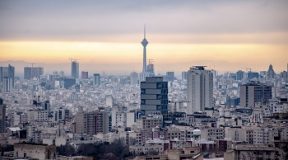Iran
Tourism in Iran offers a rich and diverse experience for travelers. Iran is a country with a long and storied history, stunning natural landscapes, and a vibrant culture. Here are some key aspects of tourism in Iran:
Historical and Cultural Attractions:
Iran is home to numerous UNESCO World Heritage Sites, including Persepolis, Naqsh-e Jahan Square in Isfahan, and the ancient city of Susa.
The country boasts a rich history with remnants of ancient civilizations, such as the Achaemenids, Parthians, and Sassanids.
Visitors can explore architectural wonders like mosques, palaces, and historic bazaars, which are integral to the Persian heritage.
Natural Beauty:
Iran is blessed with diverse landscapes, from the lush forests of the Caspian Sea region to the deserts of central Iran and the towering Alborz and Zagros mountain ranges.
Popular natural attractions include Mount Damavand, the highest peak in the Middle East, and the unique Lut Desert, which features mesmerizing sand formations.
Persian Cuisine:
Iranian cuisine is known for its rich flavors and variety, with dishes like kebabs, stews, and rice dishes like tahdig.
Tea, saffron, and various herbs and spices are also an integral part of Persian cuisine.
Hospitality and Warmth:
Iranians are renowned for their hospitality and warmth towards guests. Travelers often experience a genuine and warm welcome from locals.
Arts and Crafts:
Iran has a rich tradition of arts and crafts, including intricate Persian carpets, miniature painting, calligraphy, and pottery. Visitors can explore local markets for these traditional crafts.
Religious Tourism:
Iran is an important destination for religious tourism, with notable sites like the Imam Reza Shrine in Mashhad and the city of Qom, which is a significant center for Shia Islam.
Modern Cities:
Tehran, the capital of Iran, offers a modern and bustling urban experience with museums, galleries, and a vibrant nightlife.
Safety and Security:
Iran is generally considered safe for tourists, with a low crime rate. However, it's essential to be aware of and respectful of local customs and regulations, especially concerning dress code and cultural norms.
Visa Requirements:
Travelers to Iran typically require a tourist visa. Regulations can change, so it's advisable to check the latest requirements with the Iranian embassy or consulate in your country.
It's important to stay informed about the latest travel advisories and guidelines when planning a trip to Iran, as political and safety conditions can change. Additionally, it's recommended to be respectful of local customs and traditions, including dress codes and etiquette when visiting religious sites. Overall, tourism in Iran offers a unique and enriching experience for those who wish to explore its rich history, culture, and natural beauty.





